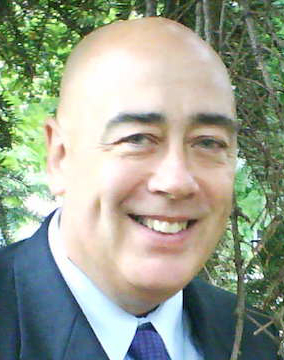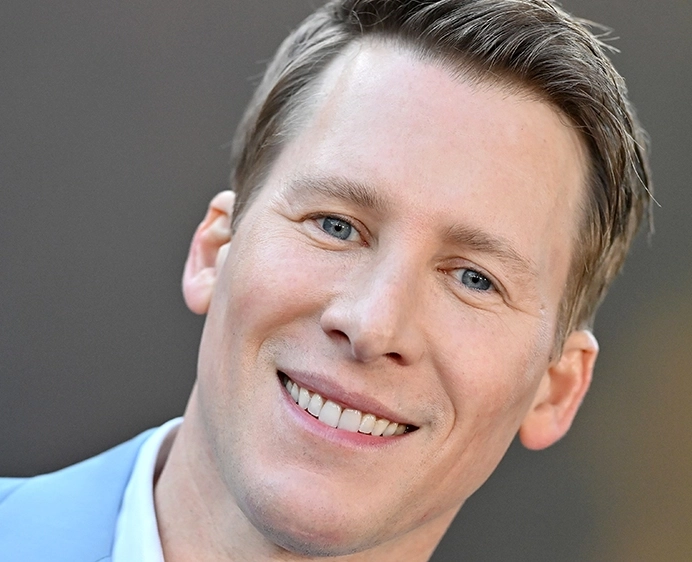Several years ago, when I was a professor at a Baptist university, a student told me he had encouraged a gay Christian friend to come talk with me. He assured him I was compassionate, understanding and non-judgmental.
It wasn’t long before that young man stopped by my office for a visit.
I listened while he told his story. Someone in his rural community had outed him to his single-parent father, who was so upset by his son’s sexual identity that he kicked him out of the house and told him he would no longer pay anything toward his college education. This distraught, discouraged 20-year-old did not know what to do next, except to drop out of school and search for a job and a place to live.
“As we talked, it became clear he never had heard anything except condemnation concerning homosexuality from pastors, churches or the Christians he knew.”
As we talked, it became clear he never had heard anything except condemnation concerning homosexuality from pastors, churches or the Christians he knew. So, I suggested a list of books he might read that are written by Christian ethicists, theologians and pastors who do not condemn gay persons, talk about gayness as a choice, or attack the “gay lifestyle” and “gay agenda.” Rather, they approach the subject of sexuality with insight and helpfulness. They deal with the familiar admonitions against same-sex relations with interpretations and a generosity of spirit this young man never had heard. Furthermore, they stress biblical passages that speak of abundant grace and love for all God’s children.
This hurting individual thanked me and left my office, and I never saw him again. But a few days later, I was summoned by a university administrator to give an account of my meeting with this gay student.
When I related what I had done — listen to his story and suggest some helpful reading material — I seemed to be cleared of wrong-doing. The administrator explained, however: “If you had told him that homosexuality was OK, we would have a problem.”
The ominous implication was that I would be reprimanded, and possibly might even lose my job, despite my tenured position as full professor.
Why can’t we be kind?
Why can’t some Christians be kind to LGBTQ persons and their advocates?
That experience, which occurred many years ago, is illustrative of a long and shameful history of Christian rejection of same-sex relations. Those attacks on LGBTQ persons — many of them committed Christians themselves — have been manifested in numerous ways. There have been public recriminations, sermonic finger-pointing, misinterpretations or selective reading of Scripture, ineffective and even cruel conversion therapy of the young, discriminatory policies at churches and church-related schools and universities, the outing of LGBTQ persons without their consent and the denial of who these persons truly are, as beloved creations of God.
The SBC’s record
The Southern Baptist Convention has a long record of LGBTQ denunciation. According to the Human Rights Campaign (America’s largest LGBTQ advocacy group), Southern Baptists through their official statements and actions have discriminated against lesbian, gay, bisexual, transgender and queer or questioning neighbors for more than a quarter century. Significant milestones include the following:
- In a 1996 “Resolution on a Christian Response to Homosexuality,” the SBC declared “even a desire to engage in a homosexual relationship is always sinful, impure, degrading, shameful, unnatural, indecent and perverted.”
- The 2000 Baptist Faith and Message equates “homosexuality” with adultery and pornography, declaring, “In the spirit of Christ, Christians should oppose … all forms of sexual immorality, including adultery, homosexuality and pornography.”
- At the 2012 SBC annual meeting, the convention passed a resolution affirming “that gender identity is determined by biological sex and not by one’s self-perception — a perception which is often influenced by fallen human nature in ways contrary to God’s design.”
- In 2017, top leaders of the SBC joined other evangelical leaders in a statement denouncing LGBTQ people and their identities as “inconsistent with God’s holy purposes in creation and redemption.”
“These statements reflect terrible theology.”
These statements reflect terrible theology. They assert that even people’s temptations to same-sex love are always sinful, impure, unnatural and perverted; that the growing awareness by a young person that he or she is gay can be morally equated with the massively vile, multi-billion dollar global scourge of pornography; that individuals who struggle to bring their biological identity into balance with their mental, emotional and spiritual natures are doing something that is “fallen” and “contrary to God’s design”; and that LGBTQ persons and their declared identities call into question God’s creating or redeeming work in their lives.
Prior to the 2016 SBC meeting in St. Louis, President Ronnie Floyd named the 10 members of the Resolutions Committee, charged with bringing important pronouncements and affirmations to the convention floor. Floyd’s choices were revealing, as almost half the nominees were people publicly critical of the LGBTQ community. These committee members included Matthew Staver, director of the Liberty Council, long known as outspokenly anti-LGBTQ, and attorney Shannon Royce, COO of the LGBTQ-hate group Family Research Council.
Along with these two powerful men was Mark Harris, a North Carolina pastor whose unsuccessful campaign for statewide office was based on scare tactics concerning same-sex marriage, civil unions, transgender persons and school restrooms. Another member was Kelvin Cochran, strategic officer of a Baptist church in Atlanta, who self-published a book comparing homosexuality to bestiality and pedophilia.
Ex-officio committee member Floyd had published his own 2004 book, The Gay Agenda: It’s Dividing the Family, the Church, and a Nation, in which he claimed if left unchecked, the “gay agenda” will “annihilate the family as we know it.”
It is hard to imagine that “balanced and fair” resolution proposals could possibly come from such a weighted group.
In 2021, angry Southern Baptist leaders attacked one of their own, James Merritt — former president of the SBC, pastor at Cross Pointe Church in Duluth, Ga., and adjunct professor at Southeastern Baptist Theological Seminary. Merritt’s “sin” was that he loved and had publicly supported his gay son, Jonathan, a seminary graduate, writer and popular speaker.
Merritt the father had the courage to tweet a recommendation of his son’s sermon on Mark 13, about which he said: “It was both brilliant and faithful to the gospel and the coming of Jesus.”
The backlash was swift and virulent. One Christian “brother” tweeted: “You are not showing love to your son at all by supporting his rebellion against Christ. … You both need to repent before it is too late.”
The Conservative Baptist Network was even more caustic, writing: “To present to Southern Baptists a man living in unrepentant sin as someone to whom they should listen for a sermon that is ‘faithful to the gospel,’ as the elder Merritt tweeted, is wholly illogical and demonstrably dangerous. For one who is employed by a Southern Baptist seminary receiving Cooperative Program tithe dollars to promote an unrepentant sinner — no matter whose son he is — as a trustworthy preaching source is a betrayal of trusting Southern Baptists.”
Dangerous dishonesty
Why can’t some Christians be kind to LGBTQ persons and their advocates?
The reasons relate to dangerous dishonesty.

Bruce Bawer
Bruce Bawer, a journalist, leading American cultural critic and practicing Christian — who happens to be gay — writes about this phenomenon in A Place at the Table: The Gay Individual in American Society, a book described as “one of the most sensible assessments of the gay rights movement that’s ever been written, as well as one of the most eloquent arguments for acceptance of gays that’s ever been written.”
Bawer writes: “Dishonesty about homosexuality only breeds ignorance — and as a result of that ignorance, hate is sown in places where there might be love, distrust where there might be understanding, antagonism and violence where there might be harmony and peace. It is, indeed, dishonesty — both on the part of professional bigots who deliberately misrepresent homosexuality and on the part of the majority of gays who, feeling compelled by the ubiquity of prejudice to hide their homosexuality, have rendered themselves powerless to challenge those false representations — that have kept most Americans confused and ill-informed about the basic truths of homosexuality and gay life.”
Five examples of dishonesty
In what ways are some Christians dishonest and unkind about their LGBTQ neighbors?
First, they are dishonest about who these people are. Heterosexual churchgoers often believe the lies, stereotyping, misrepresentations, fear-mongering warnings and their gut-reactions instead of listening to their head reflections or heart impressions. They put all LGBTQ persons in the same broad category, perhaps identified with the most flamboyant, sex-obsessed and narrow but highly visible segment of the population.
This is dishonest, for there are gay people living modestly and participating productively in every arena of human life. Two prominent and impressive examples are U.S. Secretary of Transportation Pete Buttigieg and his husband, Chasten, but there are millions of others who are less famous.
“There is only one way in which all LBGTQ persons are alike and must be put in the same category.”
There is only one way in which all LBGTQ persons are alike and must be put in the same category: They are all creations of God and beloved children of the heavenly parent.
Second, they are dishonest concerning the gay agenda. Rather than understand that LGBTQ persons are organizing and advocating for basic human rights, for equality of opportunities and acknowledgment as fellow Americans, some Christians fear there is an “agenda” that is nefarious — that lesbian, gay or queer persons want to seduce straight people or prey upon the young, that bisexual persons wish to teach others the joys of “swinging both ways” and that transgender or questioning persons wish to be allowed to use bathrooms or play on sports teams that give them advantages or serve their prurient interests.
These are dishonest assumptions, similar to believing that Black Lives Matter is about Blacks dominating whites or that the MeToo Movement is about women controlling or emasculating men.
Third, they are dishonest about what it feels like to be so socially isolated. Bawer poses a fanciful scenario worth repeating. He suggests:
Imagine, if you’re a straight male, working in an office where everyone else is gay. They all have pictures of their lovers on their desks, but you don’t feel free to display a picture of your wife. Their lovers drop by at the end of the day and kiss them and drive them home, but you can’t let your wife come to the office, because it might create discomfort and ill-will, if not endanger your job. Your co-workers chat openly with their lovers on the phone, calling them “honey” and saying, “I love you!” before hanging up; when you phone your wife you assume an affable but not intimate tone, as if she were just a casual friend. Occasionally your employer holds a party in which all employees’ lovers are invited, but your spouse is not invited and stays home. At the party your co-workers and their lovers chat about their home life and you listen quietly, trying to smile when one of them tells you congenially: “Hey, we’ll have to find you a boyfriend one of these days!” For it doesn’t even occur to them that you might have a wife at home — they assume you’re gay, same as them. After all, they like you, you get along; of course you’re gay.
Bawer condemns this kind of personal dishonesty about the feelings of others who are different, concluding, “Try to imagine how you would feel in this position, and you’ll begin, perhaps, to understand what most gay people go through.”
Fourth, and much more damaging, some Christians are dishonest about their own unwillingness to acknowledge the incredible harm of judgmentalism. Richard Cleaver, a gay Christian writer and activist, discusses this reality in his book, Know my Name: A Gay Liberation Theology. He points out that while there have been many advances in the struggle for LGBTQ rights, in two significant ways the harm done to these individuals is still a tragic reality.
The first of these terrible harms is that many gay young persons are driven away from the local church that judges them. When there are sermon references to the evils of same-sex attraction, Christian teachers who denounce homosexuality at youth retreats or in Sunday school classes, and printed materials distributed which provide teenagers with biased and uninformed or simplistic explanations of human sexuality, the result is that confirmed or questioning and possibly struggling youth decide to leave the church.
This was the experience of someone whose story I heard — a trusting but perhaps naive Christian young person who “came out” to a middle school Bible class, only to have three “friends” quickly reply, “You are going to hell!”
Those young teenagers were most certainly mimicking what they had heard from their parents or other Christian adults.
Mama’s Boy is an HBO autobiographical documentary written by Dustin Lance Black, a gay Christian screenwriter. This documentary, based on Black’s memoir of the same name, tells the story of his having been raised in a conservative Mormon home. As a young person, he was very involved with his family in the church. In that setting — as one who was discovering his sexuality — he was made to feel like he “would be sent into eternal nothingness.”
Describing his confusion over what he was hearing from the church and yet was experiencing as a committed Christian teenager just beginning to accept his sexuality, Black mused: “This love, that feeling that doesn’t seem like it hurts anyone, that’s going to be my ultimate demise?” Then he named the supreme unkindness: “They were teaching me about a God who said loud and clear, ‘Your heart has no value, your love has no value.’”

Dustin Lance Black
In an interview with the Today Show about the documentary, Black recalled the crucial moment when his mom, with whom he enjoyed a close relationship as the only parent in his life, really accepted who he was. She came to visit him in another city when he was a young adult, and there she met a group of his best LGBTQ friends.
In the quiet space of his home, she spoke to a man her son was interested in dating and suggested that he take her son to dinner. Then, with obvious emotion, Black said to his interviewers, “She wrapped her arms around me and hugged me so incredibly tight, and it was the first time my mom had ever held me and loved me for me — all of me.”
The Oscar-winning screenwriter for the 2009 movie Milk then explained that the director of this documentary was moved by the story of “a conservative mom and a not-so-conservative son (who) could find this higher plane than politics — (and could) actually keep a family together in these divided times.”
The other incredible harm of discrimination is that it sometimes drives LGBTQ persons to consider or commit suicide. Lance Black admits he had considered taking his life when he was growing up and felt so alone and judged.
Richard Cleaver cites “a 1989 study commissioned by the U.S. Department of Health and Human Services, which showed that one-third of youth suicides occur among lesbian, gay or bisexual young people.”
That statistic today also tragically includes transgender youth and even children.
Black concludes: “I just think it’s worth asking the question, if you rob children of their heart, and of their ability to love, and if you threaten that they are going to lose their family, are you surprised that queer kids kill themselves — at four times the rate of their own straight brothers and sisters?”
Finally, some Christians are dishonest concerning how Jesus would respond to the LGBTQ community. Gene Robinson, Episcopal bishop of New Hampshire and a gay Christian, ponders what the response of Jesus would be in his book God Believes in Love.
He writes:
Jesus was consistently on the side of those who were outcast by society and bore the unfair burden of disdain, discrimination and prejudice. It is likely that he would look at modern-day lesbian, gay, bisexual and transgender people and hold real sympathy for them and their plight. He would have understood the implications of a system set up to benefit the heterosexual majority over the homosexual minority. It is hard to imagine Jesus joining in the wholesale discrimination against LGBT people. Isn’t it logical that he would be sympathetic to young gay teens who take their own lives rather than live with the stigma attached to their sexual orientation? Would he not be found speaking a word of support, encouragement and hope to them? Would he not be seeking a change in the hearts of those who treat them as outcasts?
“Christians know exactly how Jesus would respond, but they are not courageous enough to follow in his footsteps.”
It seems inconceivable to me that Christians truly believe Jesus would reject his gay, lesbian, bisexual, transgender or questioning brothers and sisters were he here in the flesh today. The Gospels are clear that Jesus was inclusive in his love for others, including — and perhaps especially — those whom society and the religious conservatives of his day rejected. He was most critical of the Pharisees who felt being holy meant separating themselves from everyone and everything they believed to be unholy.
The problem, perhaps, is that Christians know exactly how Jesus would respond, but they are not courageous enough to follow in his footsteps.
Tyler Clementi
Tyler Clementi was an 18-year-old freshman at Rutgers University in 2010, a likeable young man who was a quiet and talented student violinist. One evening he asked his roommate not to come into their dorm room because he had a date. Unknown to Tyler, his roommate aimed a computer webcam at the bed and recorded intimate sexual behavior between Tyler and his friend. Soon it was shared all over the dorm and throughout the larger university community. Clementi felt humiliated and horrified, and quickly he became a target of unkind words, snickers, catcalls, cyber harassment and hateful language. Unable to take the pressure of unkindness, a few days later Tyler jumped off the George Washington Bridge over the Hudson River and killed himself.

Tyler Clementi
Today, there is the Tyler Clementi Foundation at Rutgers and at other schools. The foundation has sponsored letters to the Southern Baptist Convention from LGBTQ persons and their advocates.
One of the more powerful letters is from John Pavlovitz — Christian pastor, author, heterosexual man and LGBTQ advocate. His letter to Baptists should be sent to Christians of all denominations and nations.
He writes:
Over the past two decades, I’ve been a pastor to students. It has been the greatest joy of my life to be allowed into the trenches of young people’s lives: to have access to their stories and share proximity to their pain. I’ve sat with and listened to thousands of LGBTQ young people, and I’ve had a front-row seat to the violence the church has manufactured and to the depression, self-harm and isolation it breeds. It’s the thing that grieves me, perhaps more than anything else I encounter in this work: that vast resources and energy are expended by Christians continually fighting a battle that bears no redemptive fruit, that actually exacerbates people’s marginalization, that generates unnecessary pain — a war that Jesus isn’t asking us to wage in the first place. …. Every day I mourn the way Christianity is putting LGBTQ people through undue suffering, the callousness of the hearts of so many of those who claim Jesus, and the excuses we make for doing everything but what Jesus actually called us to do: love in a way that emulates him.
I conclude by asking that you please understand my motive for this article. It is not to discuss the scientific, sociological, psychological or theological arguments, pro and con, related to how sexuality is experienced and expressed by people in the LBGTQ community. It is, instead, to plead with my fellow Christians to begin treating these persons kindly, with listening love.
Let us do what Lance Black’s mother did — be willing to enter into a space where we hear the stories of those with whom we may disagree. These are the neighbors we must love as we love ourselves. Let us be ready to embrace them tightly because it is dishonest, as Christ-followers, to do anything else.

Robert Sellers
Rob Sellers is professor of theology and missions emeritus at Hardin-Simmons University’s Logsdon Seminary in Abilene, Texas. He is a past chair of the board of the Parliament of the World’s Religions in Chicago. He and his wife, Janie, served a quarter century as missionary teachers in Indonesia. They have two children and five grandchildren.
Related articles:
My quest to find the word ‘homosexual’ in the Bible | Opinion by Ed Oxford
As a 21-year-old seminarian, David Fearon challenged the RSV translators on the word ‘homosexual’


